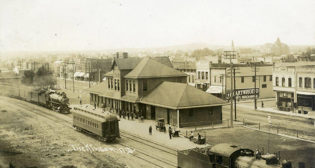
Transit Briefs: East-West Rail, MBTA, Metra, NYMTA, SEPTA
Written by Marybeth Luczak, Executive Editor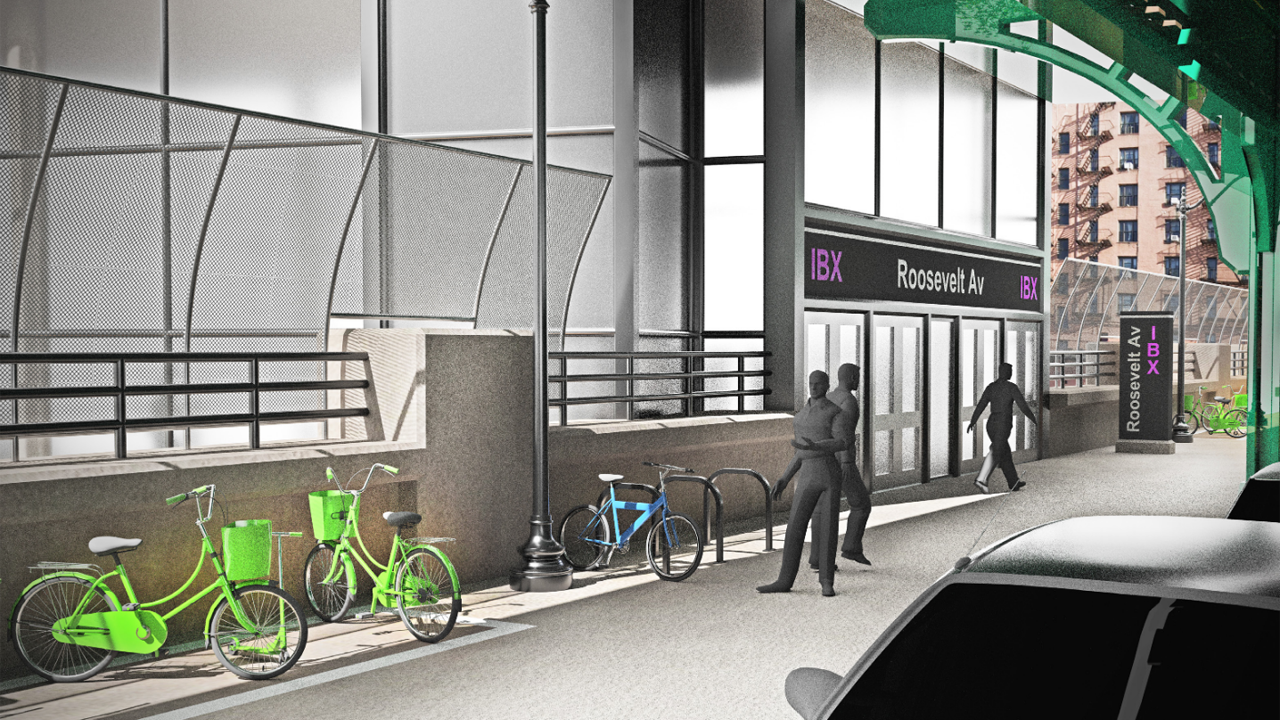
A consultant has been selected to perform the environmental review of New York MTA’s Interborough Express, a proposed 14-mile, 19-station light rail transit project. (Station Rendering Courtesy of NYMTA)
Funding for the east-west passenger rail project is left out of the Massachusetts budget. Also, Massachusetts Bay Transportation Authority (MBTA) and Boston Carmen’s ATU Local 589 reach a tentative agreement; Chicago’s Metra is boosting its ME Blue Island commuter rail service; a consultant has been selected for environmental review of the New York Metropolitan Transportation Authority’s (MTA) Interborough Express project; and Southeastern Pennsylvania Transportation Authority (SEPTA) is expanding its institutional pass program.
East-West Passenger Rail
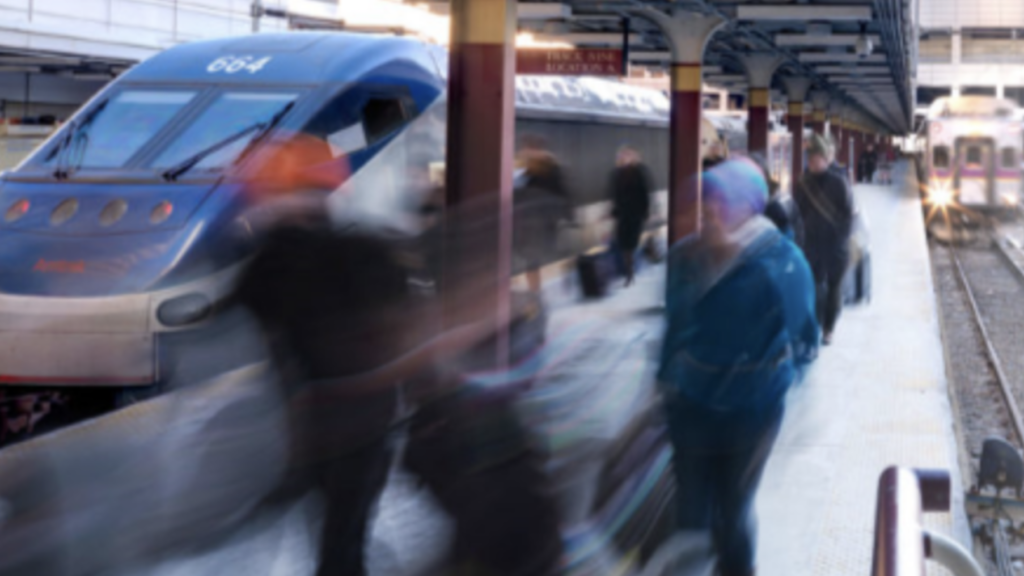
Massachusetts lawmakers did not include $12.5 million for east-west passenger rail in the commonwealth’s $56.2 billion budget passed July 31, according to a MassLive.com report.
The funding would have covered passenger rail station site selection and preliminary engineering in Palmer ($4 million) and track improvements in Pittsfield ($8.5 million), which are part of a proposed billion-dollar plan to restore passenger rail service from Boston through Worcester to Springfield and Pittsfield, the media outlet said.
Both projects were included last month in the Massachusetts Department of Transportation’s 2024-28 Capital Investment Plan, which MassLive.com said “programs state, federal and other funds to pay for long-term improvements.”
“State Rep. Todd M. Smola, R-Warren, said there is momentum on east-west rail,” MassLive.com reported. “’There is always a plan to move forward,’ he said. ‘I think the feeling was there is a lot of support for the project. But that (the state budget) wasn’t the vehicle for it.’
“Including the two projects on the Capital Investment Plan—along with $2 million in master planning for track and right-of-way expansion near Springfield Union Station—demonstrates commitment, he said.
“The introduction to that plan says the DOT continues to advance projects to improve passenger rail connections between Western Massachusetts and Boston.”
According to the media outlet, funding for east-west rail could also come from an economic development bill, transportation bond bill or supplemental budget.
Additionally, the Federal Railroad Administration is reviewing a $108 million grant application from MassDOT, Amtrak and CSX. A grant “would help fund improvements along 53 miles of railroad between Springfield and Worcester,” MassLive.com said.
MBTA
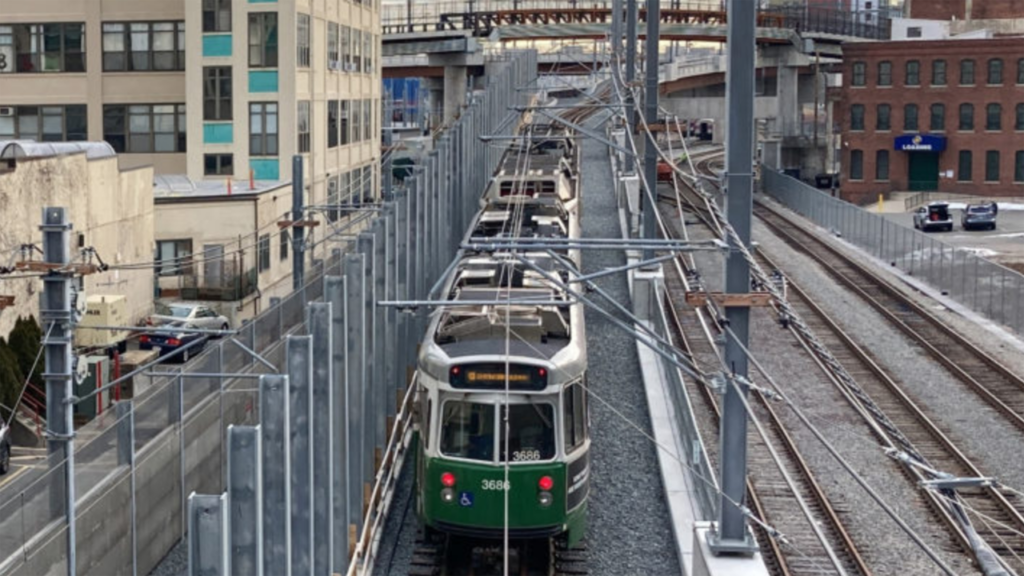
MBTA and Boston Carmen’s ATU Local 589 on Aug. 2 announced a tentative new labor agreement aimed at “improving frontline employee retention and recruitment.” The four-year agreement—subject to MBTA Board approval—includes overall wage increases (averaging approximately 4.5% per year) and longevity bonuses (with increases at 10, 15, 20 and 25 years) to help retain frontline workers, plus select targeted increases aimed at hard-to-fill positions such as welders and overnight shifts, they said. It also includes a one-time bonus for eligible retirees to defer retirement to 2024; parental leave improvements; health benefit improvements; and signing bonus eligibility expansion to all job categorizations. The deal also sets a framework to improve employee restroom access, expand bereavement leave to include domestic partners, and clarify language around assaults against transit workers, which the transit authority and union said is an increasing problem for more than 6,000 union members.
“This demonstrates to our workforce, both current and future employees, how important they are to us and the service we provide,” MBTA General Manager and CEO Phillip Eng said. “Working for the T is about improving lives, connecting people and communities. This contract greatly enhances our ability to attract new hires in key areas like bus operators by establishing a wage that is competitive with private industry. As we continue our aggressive efforts to hire and retain staff, I want to express my sincere gratitude to the Healey-Driscoll Administration [in Massachusetts] for their leadership, to the work of the MBTA’s Labor team for their contributions to this agreement, to Local 589 Carmen’s Union for their partnership, and to all the authority’s employees for their dedication and hard work.”
“This is a positive outcome for both MBTA workers and the riders we proudly serve every day,” said Jim Evers, Boston Carmen’s ATU Local 589 President. “With this strong agreement, the MBTA can attract even more of the frontline workers that the system needs in order to succeed. Thanks to the engagement of Local 589 members, strong support from our community allies along with Governor [Maura] Healey, [Massachusetts Department of Transportation] Secretary [and CEO Gina] Fiandaca, and General Manager Eng, we have achieved an agreement that supports the retention of workers and that we believe will attract more workers to careers in frontline public transit that provide a pathway to the middle class.”
Metra
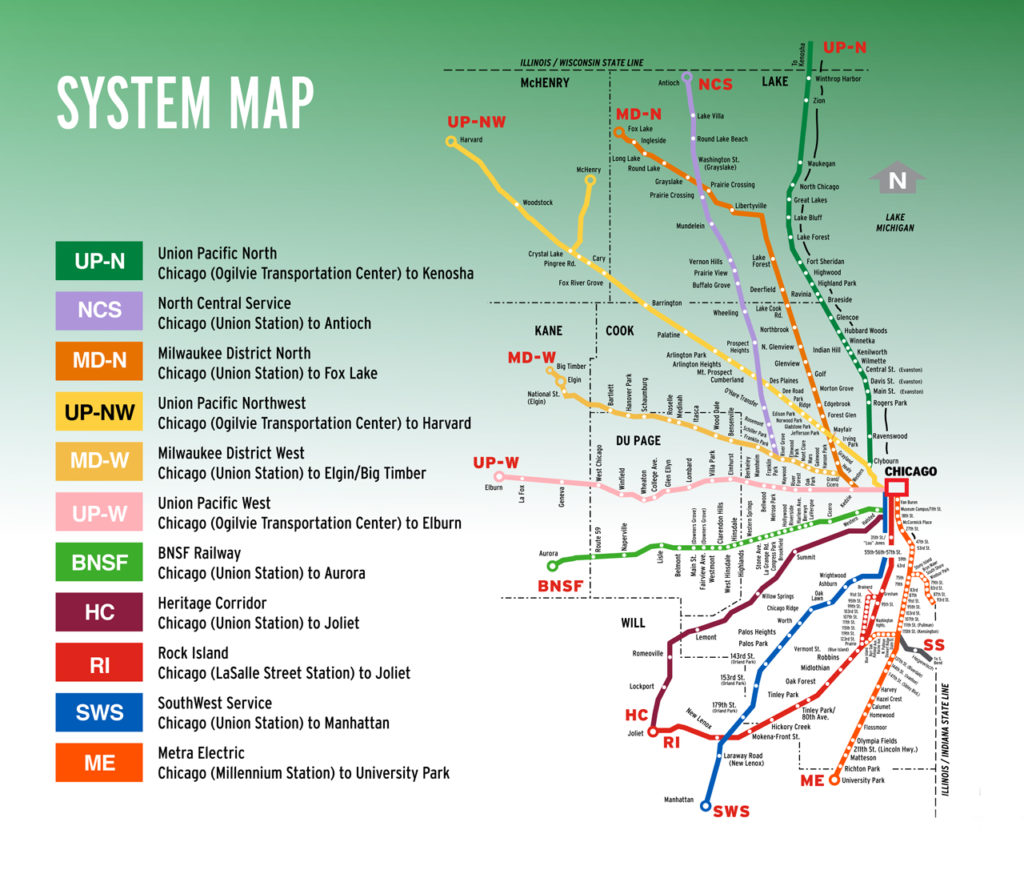
Beginning Aug. 14, Metra will add four trains to the Metra Electric Line’s Blue Island Branch schedule and Electric Line riders on all branches will see minor changes to the existing schedule “to address ridership trends and service gaps to Hyde Park and areas south to 115th/Kensington Station,” according to Chicagoland’s commuter railroad.
Since the pandemic, Hyde Park stations have seen a higher recovery in ridership compared with other locations on the Metra system; specifically, reverse-peak ridership on the Metra Electric now exceeds pre-pandemic levels, the railroad said. The updated schedule offers new options for those riders.
According to Metra, Metra Electric provides approximately 16,900 passenger trips on weekdays, or 60% of its pre-COVID ridership. The new schedule brings service levels on the line to 85% of what was provided pre-pandemic.
“Ridership is growing as more people return to a regular commuting schedule,” Metra Executive Director/CEO Jim Derwinski said. “Adding trains makes Metra a more viable option for people living along the line. We will continue to make periodic schedule adjustments to meet the changing needs of Metra riders and provide our riders with reliable schedule information.”
New York MTA
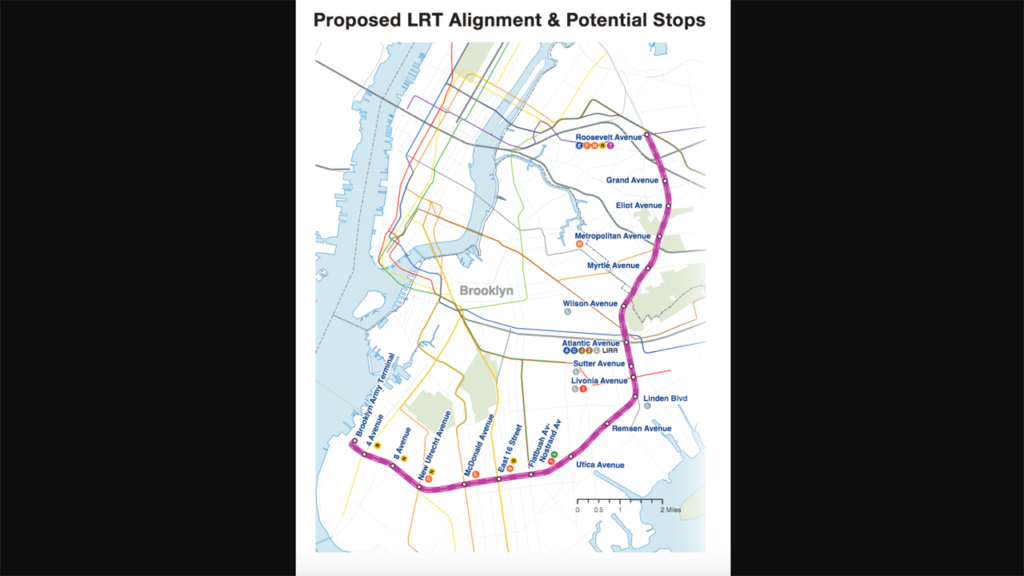
WSP USA, Inc. has been selected to perform the environmental review of New York MTA’s Interborough Express, a proposed 14-mile, 19-station light rail transit project first announced in 2022 that would connect communities in Brooklyn and Queens to 17 subway lines and the MTA Long Island Rail Road (LIRR), reducing travel times within and between the two boroughs.
According to MTA, the Interborough Express would use the existing Bay Ridge Branch freight line—owned by LIRR and operated by New York & Atlantic—and CSX’s Fremont Secondary line. The project would include several new connections in neighborhoods that currently lack efficient connections to each other, and in some cases, to Manhattan, according to MTA.
MTA Construction & Development will direct WSP USA’s work, which will cover the period up to and including the issuance of a Record of Decision (ROD), and include further advancement of conceptual design and general planning support, preparation of the Scoping Information Packet, preparation of the Environmental Impact Statement (EIS), support at EIS public hearings, and support for the Preliminary Engineering and Federal Transit Administration Capital Investment Grants (CIG) program application.
“The Interborough Express will provide better access to jobs, education and economic opportunity for well over 100,000 New Yorkers in Queens and Brooklyn,” MTA Chair and CEO Janno Lieber said.
“By forging new transit connections, the MTA will transform communities throughout lesser served areas in Brooklyn and Queens,” MTA Construction & Development President Jamie Torres-Springer said. “The Interborough Express will create seamless connections to jobs, housing, and everything the metropolitan region has to offer. Awarding a contract for the environmental review brings us one step closer to making this project a reality.”
SEPTA
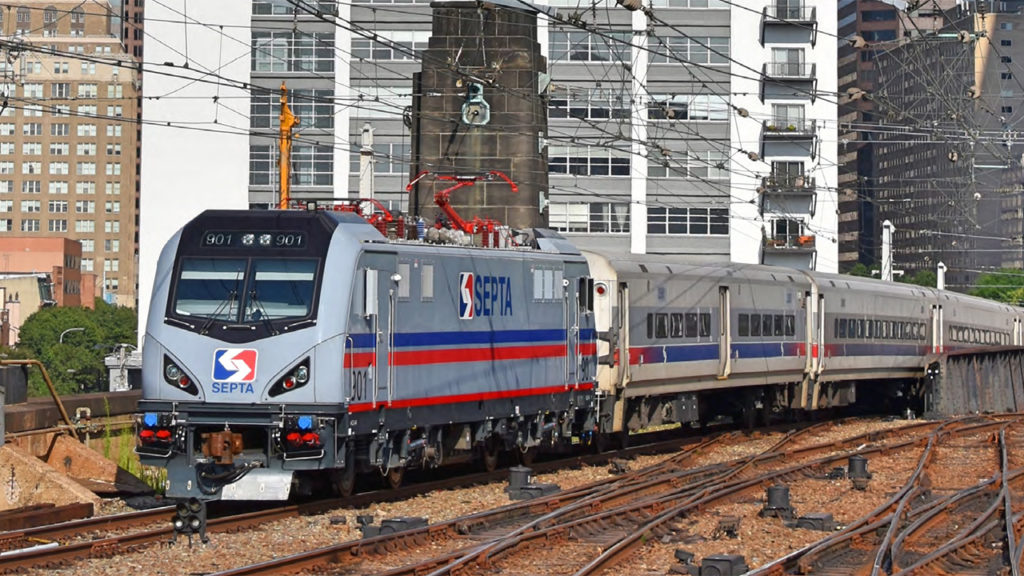
SEPTA on Aug. 3 reported expanding its institutional pass program to include colleges and universities. Swarthmore College will be the first higher education institution to participate in the SEPTA Key Advantage “UPass” program.
SEPTA Key Advantage, which was launched May 1, 2022, allows institutions to acquire SEPTA Key cards directly from the transit authority and distribute them to participants, such as employees and, now, students.
Swarthmore will provide passes to all full-time, actively enrolled students free of charge, with the program running throughout the academic year (September through December and February through May). Students can use their Key cards 24/7 during the academic year, with a 240-ride limit per month (an average of eight rides per day). SEPTA said Swarthmore will also evaluate a possible expansion of the program to college employees.
With the approval of Philadelphia Mayor Jim Kenney’s Fiscal Year 2024 Budget, the city is participating in the program by offering the passes to 22,000 city employees, said SEPTA, which noted that the total number of eligible employees is now approaching 55,000.
“We are excited to extend the benefits of SEPTA Key Advantage to students at Swarthmore College,” SEPTA CEO and General Manager Leslie S. Richards said. “This program will make it easier and less expensive for students to travel to destinations across the region.”
“Our participation in SEPTA’s Key Advantage UPass program is a chance to not only enhance our students’ living and learning experiences at the college, but also strengthen our commitment to sustainability by encouraging the use of public transportation,” said Anthony Coschignano, Swarthmore College Associate Vice President for Campus Services.



